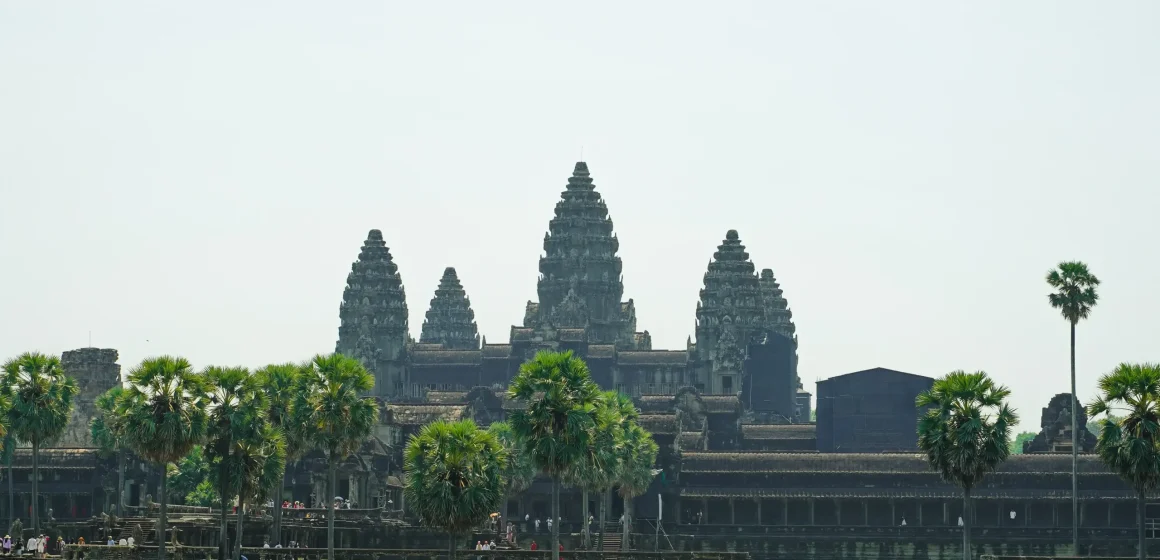Travel has always been more than a journey from one place to another. It’s a way to experience life beyond the familiar — to immerse ourselves in new cultures, discover hidden landscapes, and reconnect with our inner selves. In 2025, as the world redefines what it means to explore, travel and recreation have evolved from simple leisure activities into meaningful, purpose-driven experiences that emphasize sustainability, wellness, and connection.
1. Travel with Purpose: The Rise of Meaningful Journeys
Gone are the days when travelers measured their adventures by how many countries they could check off a list. Today’s explorers crave experiences that offer depth and authenticity. They want to feel connected — to people, to nature, and to the stories that shape a place.
This new wave of “purposeful travel” means engaging with local communities, supporting small businesses, and learning about cultural traditions firsthand. Travelers are choosing farm stays over fancy resorts, cooking classes over five-star dining, and volunteering trips over passive sightseeing.
Countries like Vietnam, Peru, and Kenya are attracting visitors through community-based tourism, where travelers can contribute to local projects — from wildlife conservation to teaching in rural schools. This type of travel not only creates unforgettable memories but also ensures that tourism benefits the people who make a destination truly special.
2. Slow Travel: The Art of Moving Mindfully
In a world obsessed with speed, the slow travel movement has become a refreshing alternative. Rather than racing from one city to another, slow travelers embrace a relaxed pace, allowing themselves to fully absorb the essence of a place.
Imagine spending a month in a cozy Italian village, getting to know the locals at the market, learning to cook traditional pasta dishes, and watching sunsets from the same quiet balcony every evening. Slow travel encourages travelers to live in the moment, fostering a sense of gratitude and mindfulness that many fast-paced vacations lack.
Trains, bicycles, and walking tours are making a strong comeback as sustainable ways to explore regions without rushing. Europe’s rail networks, Japan’s countryside, and New Zealand’s coastal trails are perfect for travelers seeking immersive experiences that don’t harm the environment.

3. Sustainable Tourism: Protecting the Planet While Exploring It
Sustainability is no longer just a buzzword — it’s a moral responsibility. Travelers are becoming increasingly aware of their environmental impact and are demanding eco-friendly options. Airlines are investing in cleaner fuels, hotels are going plastic-free, and local governments are implementing conservation programs to protect natural and cultural heritage sites.
Eco-lodges powered by renewable energy, zero-waste restaurants, and ethical wildlife tours are gaining popularity. Travelers are also offsetting carbon emissions, reducing plastic use, and prioritizing destinations that value sustainability.
In places like Costa Rica, travelers can experience lush rainforests while supporting eco-reserves that protect biodiversity. Meanwhile, destinations such as Iceland and Bhutan are setting global examples of responsible tourism — limiting visitor numbers to preserve their fragile ecosystems.
4. The Wellness Travel Revolution
In an increasingly digital and stressful world, wellness travel has emerged as one of the fastest-growing segments of recreation. People are not just traveling to see the world — they’re traveling to heal, recharge, and find balance.
Wellness retreats now combine yoga, meditation, and nature therapy with holistic treatments and nutrition programs. From mountain meditation centers in the Himalayas to luxury spa resorts in Bali, the focus is on nurturing body, mind, and soul.
Even traditional vacations are taking on a wellness angle. Beach resorts are offering sunrise yoga, forest lodges are promoting “digital detox” programs, and urban hotels are integrating mindfulness sessions into their guest experiences. The message is clear: travel is no longer about escape — it’s about self-discovery and renewal.
5. Adventure and Outdoor Recreation: Embracing the Wild
For those who crave excitement and challenge, adventure travel continues to dominate the recreation scene. But in 2025, it’s not just about adrenaline; it’s about connecting with nature responsibly.
Adventure tourism includes hiking, mountain biking, rock climbing, diving, and skiing — but with a growing emphasis on safety, environmental respect, and cultural awareness. Micro-adventures — short, local outdoor experiences — are also becoming popular for busy travelers who want the thrill of exploration without the need for long vacations.
Destinations such as Patagonia, the Swiss Alps, and Canada’s Banff National Park remain top choices for nature lovers. Yet, even lesser-known regions are drawing attention — from hiking the Balkans’ Via Dinarica trail to exploring the deserts of Namibia.
These experiences remind us of the simple truth: the world is a playground for those willing to step outside their comfort zones.
6. Technology and the Future of Travel
Technology continues to reshape how we explore the world. In 2025, artificial intelligence, virtual reality, and digital platforms have made travel planning easier and more personalized than ever before.
AI-powered tools now create customized itineraries based on your interests, weather, and budget. Augmented reality apps enhance sightseeing experiences by offering instant translations or historical insights. Virtual reality previews let travelers “visit” destinations before they even leave home.
Smart hotels use automation to provide seamless comfort — from voice-controlled rooms to digital concierge services. Meanwhile, blockchain technology is improving transparency in bookings, ensuring fair pricing and secure transactions.
Despite these innovations, the essence of travel remains deeply human. Technology may simplify logistics, but the emotional reward still lies in face-to-face encounters, real-world adventures, and moments that can’t be replicated online.
7. Localism and Cultural Immersion
In 2025, travelers are saying goodbye to “cookie-cutter” experiences. They’re replacing tourist traps with local gems — markets, cafés, workshops, and festivals that capture a destination’s true spirit.
Cultural tourism offers a deeper understanding of how people live, think, and celebrate. Travelers are eager to learn traditional crafts, taste authentic home-cooked meals, and participate in community events.
For instance, visitors to Japan are learning calligraphy and tea ceremonies, while those exploring Mexico might join Day of the Dead celebrations. These experiences go beyond sightseeing — they create emotional bonds that transform the traveler and honor the host culture.

Conclusion: Travel as a Path to Growth and Connection
Travel in 2025 is more than recreation; it’s a form of transformation. It invites us to slow down, to see the world through different eyes, and to discover the richness of our shared humanity.
Whether you’re trekking through the Andes, soaking in the hot springs of Iceland, or simply exploring your own country’s hidden corners, every journey is an opportunity to grow. Travel teaches empathy, patience, and respect — values the world needs more than ever.
As technology advances and global connections deepen, the essence of travel remains timeless: curiosity, wonder, and the pursuit of meaning. The best trips don’t just change where we are — they change who we are.
So, pack lightly, travel mindfully, and embrace the adventure. The world is waiting — not just to be seen, but to be experienced.


Leave a Reply